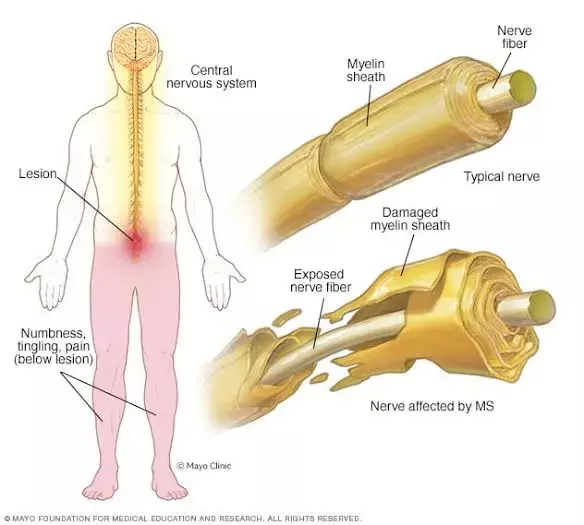- Home
- Medical news & Guidelines
- Anesthesiology
- Cardiology and CTVS
- Critical Care
- Dentistry
- Dermatology
- Diabetes and Endocrinology
- ENT
- Gastroenterology
- Medicine
- Nephrology
- Neurology
- Obstretics-Gynaecology
- Oncology
- Ophthalmology
- Orthopaedics
- Pediatrics-Neonatology
- Psychiatry
- Pulmonology
- Radiology
- Surgery
- Urology
- Laboratory Medicine
- Diet
- Nursing
- Paramedical
- Physiotherapy
- Health news
- Fact Check
- Bone Health Fact Check
- Brain Health Fact Check
- Cancer Related Fact Check
- Child Care Fact Check
- Dental and oral health fact check
- Diabetes and metabolic health fact check
- Diet and Nutrition Fact Check
- Eye and ENT Care Fact Check
- Fitness fact check
- Gut health fact check
- Heart health fact check
- Kidney health fact check
- Medical education fact check
- Men's health fact check
- Respiratory fact check
- Skin and hair care fact check
- Vaccine and Immunization fact check
- Women's health fact check
- AYUSH
- State News
- Andaman and Nicobar Islands
- Andhra Pradesh
- Arunachal Pradesh
- Assam
- Bihar
- Chandigarh
- Chattisgarh
- Dadra and Nagar Haveli
- Daman and Diu
- Delhi
- Goa
- Gujarat
- Haryana
- Himachal Pradesh
- Jammu & Kashmir
- Jharkhand
- Karnataka
- Kerala
- Ladakh
- Lakshadweep
- Madhya Pradesh
- Maharashtra
- Manipur
- Meghalaya
- Mizoram
- Nagaland
- Odisha
- Puducherry
- Punjab
- Rajasthan
- Sikkim
- Tamil Nadu
- Telangana
- Tripura
- Uttar Pradesh
- Uttrakhand
- West Bengal
- Medical Education
- Industry
Increased CMV response at disease onset protective in long-term prognosis of Multiple Sclerosis

Recent research in Barcelona published in the Journal of Neurology, Neurosurgery & Psychiatry suggests that elevated immune responses against HCMV at disease onset have protective effects on long-term disability and inflammation disease outcomes, and that increased immune responses against EBV in early phases may influence long term disease prognosis.
The association between infection by the Epstein-Barr virus (EBV) and multiple sclerosis (MS) development has been known for many years and recently there is strong evidence for a causal relationship between EBV and MS based on the finding that individuals who seroconverted during the study had a 32-fold risk increased for MS, whereas infection with other viruses including the human cytomegalovirus (HCMV), which shows similar epidemiology to EBV, was not associated with an increased MS risk.
Humoral immune responses against Epstein-Barr virus (EBV)-encoded nuclear antigen EBNA1, viral capsid antigen (VCA) and early antigen, and toward cytomegalovirus (HCMV), human herpesvirus 6 and measles were investigated by Comabella et al in a cohort of 143 patients with MS for their association with long-term disability and inflammation disease outcomes.
They found that the immune responses against EBV-encoded antigens maintained a long-term prognostic role but mainly on inflammation-related outcomes. Increased immune responses against EBNA1 antigen at disease onset were associated with an increased relapse rate. To a lesser degree, EBNA1-specific IgG levels were also slightly increased at disease onset in patients who reached an Expanded Disability Status Scale (EDSS) of 3.0 and received second-line therapies, and slightly correlated with disease severity.
Immune responses against the lytic EBV antigen VCA at disease onset, played a more important prognostic role in long-term outcomes. Elevated VCA-specific immune responses, indicative for increased viral reactivation and replication, were associated with an increased risk for treatment with first-line and second-line therapies, and with shorter time to treatment onset. Unexpectedly, immune responses to another lytic antigen, EBV-EA, seemed to play a modest long-term prognostic role and were only associated with lower relapse rate during follow-up at the univariable level.
They also found that elevated immune responses against HCMV at disease onset had protective effects on a number of outcomes mostly related with disability such as the time to EDSS 4.0 and the time to develop a secondary progressive MS (SPMS) disease course. HCMV seroprevalence in patients at disease onset was 60%, HCMV establishes latency in bone marrow-derived myeloid progenitor cells and monocytes seem to be the major reservoir of HCMV persistence in peripheral blood mononuclear cells. HCMV-driven expansion of NKG2C+NK cells was associated with a lower risk of disability progression in patients with MS. Furthermore, HCMV infection was found associated with a reduced proinflammatory cytokine profile in B cells from patients with progressive MS, which may also contribute to the protective role found for this virus in MS.
Their results suggest that HCMV IgG antibody levels should be measured at the time of the first demyelinating event, insomuch as they may have protective effects on long-term disability and inflammation outcomes. Also, EBV infection was not only associated with an increased risk for MS but may also influence long-term disease prognosis.
Reference: Manuel Comabella et al; Journal of Neurology, Neurosurgery and Psychiatryhttp://dx.doi.org/10.1136/jnnp-2022-330205
MBBS, DrNB Neurosurgery
Krishna Shah, MBBS, DrNB Neurosurgery. She did her MBBS from GMC, Jamnagar, and there after did direct 6 Year DrNB Neurosurgery from Sir Ganga Ram Hospital, Delhi. Her interests lie in Brain and Spine surgery, Neurological disorders, minimally invasive surgeries, Endoscopic brain and spine procedures, as well as research.
Dr Kamal Kant Kohli-MBBS, DTCD- a chest specialist with more than 30 years of practice and a flair for writing clinical articles, Dr Kamal Kant Kohli joined Medical Dialogues as a Chief Editor of Medical News. Besides writing articles, as an editor, he proofreads and verifies all the medical content published on Medical Dialogues including those coming from journals, studies,medical conferences,guidelines etc. Email: drkohli@medicaldialogues.in. Contact no. 011-43720751


